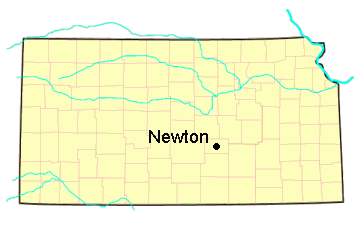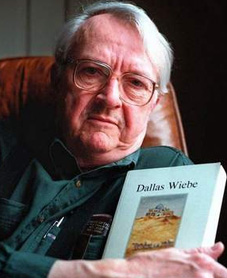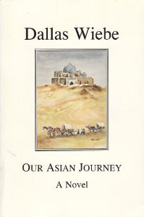
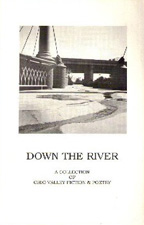
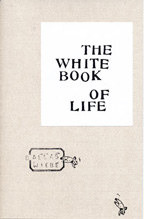
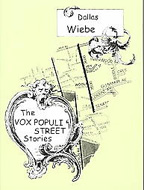






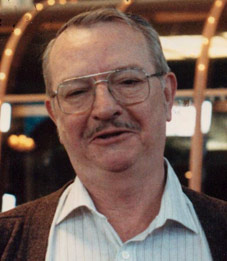 *photo courtesy of Denise Low
*photo courtesy of Denise Low
|
| Biography |
|
| |
Dallas Wiebe was born and raised in Newton, Kansas, during the great depression. He was baptized Mennonite in 1946, shortly before graduating from Newton High School in 1948.
Wiebe attended Bethel College in North Newton, Kansas, where he majored in English Literature. He met his wife Virginia at Bethel in 1951, where she majored in music. Wiebe was drafted into the U.S. Medical corps for 2 years but he returned to Bethel and graduated in June 1954.
Wiebe finished his doctoral work in English at the University of Michigan in 1960 and then took his first teaching position at the University of Wisconsin. In 1963, Wiebe moved to Cincinnati and began work at the University of Cincinnati.
While at UC, Wiebe founded the Cincinnati Poetry Review, editing the first 24 issues. He also founded and spearheaded the creative writing program while there.
Wiebe was married to Virginia for 50 years before she passed away in 2002. The couple had a son and a daughter. Wiebe was known to inspire his children and challenge their imaginations.
Wiebe was known throughout his life to always carry a 3x5 index card in his pocket where he would write down his thoughts and views of society.
He was a lover of classical music with a passion for ice cream.
Dallas Wiebe died May 1, 2008 at the age of 78 of congestive heart failure.
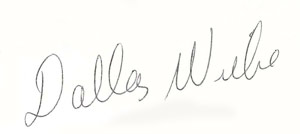
Return to Top of Page |
|
|
Bibliography ( - housed in Thomas Fox Averill Kansas Studies Collection) - housed in Thomas Fox Averill Kansas Studies Collection) |
|
| |
- Monument: On Aging and Dying (Sand Hills Books, 2008)
 The Sayings of Abraham Nofziger II: An Enchiridion for the Pious (Self Published, 2007) The Sayings of Abraham Nofziger II: An Enchiridion for the Pious (Self Published, 2007) The Nofziger Letters II (Self Published, 2006) The Nofziger Letters II (Self Published, 2006)
- The White Book of Life (Obscure Publications, 2006)
- The Notebook of Laura Bonair: and other stories (Obscure Publications, 2005)
- Fer Fio's Journey (Obscure Publications, 2005)
 The Nofziger Letters (Self Published, 2005) The Nofziger Letters (Self Published, 2005)
 On the Cross: Devotional Poems (DreamSeeker Books, 2005) On the Cross: Devotional Poems (DreamSeeker Books, 2005) The Saying of Abraham Nofziger: A Guide for the Perplexed (Self Published, 2004) The Saying of Abraham Nofziger: A Guide for the Perplexed (Self Published, 2004) Vox Populi Street stories (Burning Deck, 2003) Vox Populi Street stories (Burning Deck, 2003) No Love, No Sorrow (Self Published, 2003) No Love, No Sorrow (Self Published, 2003)- Prolegomena to the Study of Apocalyptic Hermeneutics (Obscure Publications, 2001)
 Going to the Mountain (Burning Deck, 1998) Going to the Mountain (Burning Deck, 1998)- Our Asian Journey (Waterloo, 1997)
 Skyblue's Essays (Burning Deck, 1995) Skyblue's Essays (Burning Deck, 1995) The Kansas Poems (Cincinnati Poetry Review, 1987) The Kansas Poems (Cincinnati Poetry Review, 1987) The Transparent Eye-ball and other stories (Burning Deck, 1982) The Transparent Eye-ball and other stories (Burning Deck, 1982) Skyblue's Memoirs (Obsure Publications, 1972) Skyblue's Memoirs (Obsure Publications, 1972) Skyblue the Badass (Doubleday,1969) Skyblue the Badass (Doubleday,1969)
- In the Late, Gnat Light (Earl D. Arnold Printing Company,1965)
Return to Top of Page |
|
|
| Writing Samples |
|
| |
Wildlife in Kansas
They bulldozed the hedgerows.
They spray by plane.
In two weeks
I saw one meadow lark,
the state bird.
English Department
Teaching isn't like milking a cow.
If a cow swings her tail
And hits you in the face
with a tassle full of manure
You don't promote her,
give her a merit raise
or a teaching award.
Elegy I
I want to lie
in Kansas loam.
I want my bones
where the buffalo roamed.
I want to be
by Black Kettle Creek
Forever. That's heaven enough
for me.
Return to Top of Page |
|
|
|
|
| |
Return to Top of Page |
|
| Book Reviews |
|
| |
Our Asian Journey
"Our Asian Journey is a wonder. It’s hard to imagine that any event in history has been given such careful and imaginative articulation. Finally, it’s a joyful and dignified adventure, as are Dallas Wiebe’s short stories and poems. All proceed from a loving sensibility and a clear and certain moral sense. The celebration is in the often hilarious humor, and the pleasure is in the unfolding, in the reading, of Dallas Wiebe’s unique sensibility."
--- Toby Olson, Golden Handcuffs Review
Going to the Mountain
"In this collection of wonderfully eccentric and inventive tales Wiebe covers a wide range of life experience from the adventures of a prodigious child who even in the womb is anxious to be born and "get started writing everything down" to the surrealistic nursing home life of the aged and blind William Weary. Wiebe's alter-ego, the mysterious Skyblue aka Badass aka Peter Seiltanzer, Ph.D., a Professor of English in Cincinnati, appears and reappears in the book—everyone seems to know him—until in the last story he has taken on the role of the Angel of Death. In "The Fairy Feller's Master Stroke" the narrator begins a discussion of a painting by the artist Richard Dadd, a genre painter of fairies who was confirmed to a hospital for the criminally insane after he had murdered his father. Suddenly the scholarly discussion turns uncanny as we realize that the narrator is an Oberon impersonator who for reasons unknown wears a golden crown and silver sandals and carries a spear. These are marvelous stories often disturbing, frequently hilarious and always surprising. The monstrously talented child in the title story reaches the age of five with total recall and a terror of kindergarten. "The dark night of my youth is over," he says. "I go to record the unrecorded babble of my race, shaking like the mountain on which I stand." Harry Matthews describes these stories as "touch, elegant and unsettlingly original.""
--- Elizabeth MacKiernan, Exploring Fictions
Return to Top of Page |
|
|
|

